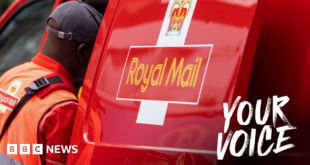Britain’s Labour government is finalising massive public spending cuts to pay for an increase in military spending.
On Monday Bloomberg reported, “Some UK government departments are bracing for budget cuts of as much as 11% as Prime Minister Sir Keir Starmer comes under mounting pressure to plow more money into defense.”
Saying its sources were Treasury insiders, Bloomberg reported that the “Treasury has asked so-called unprotected public services outside of health, education and defense to model two scenarios ahead of a three-year spending review due in June.” These translate to “an inflation-adjusted cut of around 5%—and a spending reduction that in real terms comes to about 11% over the period.”
Bloomberg noted, “While that second model was originally seen as a worst-case scenario, it now looks more plausible for some departments amid hints from Starmer that defense spending is set to rise…”
Cuts are being accelerated following crisis meetings between Starmer and Armed Forces chiefs in Downing Street as Labour finalises its strategic defence review (SDR) due within weeks.
Labour came to office pledging that its SDR would set a “pathway” to raising military spending to 2.5 percent of GDP from its current 2.3 percent. But with Labour backing the NATO war against Russia in Ukraine and seeking a role in policing any deal reached between US President Donald Trump and Russia’s Vladimir Putin, former military chiefs have demanded 3 percent and above.
Trump said last month that Europe’s NATO powers would have to commit to military spending of 5 percent of GDP.
The Financial Times reported February 12: “The chiefs want a budget of 2.65 percent of GDP but the Treasury is adamant that they should work to 2.3 per cent. A second official confirmed the gap between the two sides, which amounts to about £10bn a year.”
The Sunday Times reported that one-to-one meetings were held last Friday at Downing Street with Admiral Sir Tony Radakin, the chief of the defence staff, and the heads of the army, RAF and Royal Navy. Starmer then committed at the Munich Security Conference over the weekend that he would authorise UK troops on the ground if required in a US-backed ceasefire deal over Ukraine.
Even so, none of what Labour proposes is anyway near enough for the ruling elite, with former military chiefs more freely able to speak denouncing the government from pillar to post.
Lord Dannatt, a former head of the British Army, told BBC Radio 4 last week that Starmer’s head was on the chopping block if he didn’t stump up billions more: “Unless Keir Starmer and [Chancellor] Rachel Reeves can find ways of producing more money, well beyond 2.5 percent towards 3 percent or 3.5 percent for starters on our defence budget, then this strategic defence review is going to be hollow, it’s going to be a failure and, frankly, it’ll consign Keir Starmer to the bin of history”.
Due to cuts imposed by successive Conservative and Labour governments since the end of the Cold War, armed forces numbers have been slashed. The BBC noted Wednesday, “When British forces were sent to Helmand [Afghanistan] in 2009, the British Army had more than 100,000 regular troops.
“Now it is at its smallest since the Napoleonic wars, at just over 70,000. Even before the cuts, the British Army was stretched sending a force of 9,000 troops.”
Dannatt poured cold water on any possibility of Starmer being able to put substantial troops on the ground in Ukraine because “If we were to deploy 10,000 troops, each rotation for six months, that would effectively tie up 30,000 or 40,000 troops—and we just haven’t got that number available”. He warned, “Our military is so run down at the present moment, numerically and as far as capability and equipment is concerned, it would potentially be quite embarrassing”.
General Sir Richard Shirreff, a former NATO deputy supreme allied commander, said Trump’s plan to agree a peace deal with Russia meant that Europe “cannot trust or rely on the United States”. For Britain this meant, “Were talking about moving back to levels of defence spending not seen since the Cold War,” requiring “real sacrifice”. The Daily Mail noted that this “suggested defence spending would have to rise to Cold War levels of around 4 percent,” as in the 1980s.
Every major newspaper waded in to put the government on notice. The Telegraph cited a “senior Whitehall source” stating, “This 2.5 percent figure won’t touch the sides.” The military chiefs did not have an exact percentage figure for military spending, “only agreeing that it needed to be ‘many billions more’…”
The biggest problem the Treasury faced was making the public understand why defence needed more: “The psyche of the nation is we aren’t under attack, we aren’t affected… So they don’t want to take money from our roads, railways, NHS, to plug defence.”
The Telegraph source complained that Defence Secretary John Healey had “said that the Armed Forces aren’t fit to fight today with the money they’ve got today, and then you have the Nato ask and the Trump thing… if a house is letting water in you don’t say we’ll fix the roof in two years’ time.”
In pursuance of its demands, the Telegraph announced it would run “a series of exclusive essays by expert commentators looking into Britain’s ‘hollow’ armed forces.”
Speaking for a ruling class demanding a vast rearmament programme, right-wing commentator Andrew Neil wrote in a Mail op-ed, “This is a watershed in Europe’s history. For decades we have lavished billions on welfare and sent the bill for our defence to America—and Trump simply won’t let that continue.”
While “most European members of Nato” had increased “their defence spending to 2 percent of GDP… in today’s dangerous world, that is still pathetically inadequate.”
Neil denounced Labour’s “roadmap” policy, saying, “We urgently need to spend 3 percent of our GDP—and that should only be for starters—if we are to play our proper role in the defence of Europe. Above all we need politicians with the guts to say, yes, welfare spending is important, but in severely troubled times—such as these—the defence of the realm must have priority.”
The Sun’s Political Editor Harry Cole has a close relationship with Starmer and Healey, with the newspaper backing Starmer over the Conservatives in the general election. Cole’s op-ed this week demanded, “Keir Starmer must hike UK defence spending soon”. He complained, “Since the end of the Cold War, European countries — including Britain — have ploughed their taxpayers’ money away from defence and into the welfare state.
“This so-called ‘peace dividend’ may have led to ballooning benefits and healthcare, but in reality it meant a massive subsidy from the US taxpayer for the ability for us to sleep peacefully in our beds.”
Trump’s agenda meant, “Starmer knows he is going to have to pay to play, and a crunch is coming where he will have to hike British defence spending soon to have any shred of credibility.”
What was needed was a UK replica of “Elon Musk’s DOGE (Department of Government Efficiency) project,” which “has not yet been going a month and has already shuttered BILLIONS of dollars of spending from more than 30 government agencies.”
Cole concluded, “DOGE is working. Food for thought for a PM with grand ambitions on the world stage, and in dire need of the chips to stay at the big boys’ table.”
Funding the military to fight wars means the end of welfare state policies in Britain and a relentless offensive on workers’ livelihoods. One of those touted as a replacement—if required—for Starmer as Labour leader, Health Secretary Wes Streeting, refused was asked to rule out budget cuts to the National Health Service. Speaking to Sky News on Monday, he replied, “There is no greater priority for any government than the security of the nation.”
Join the fight for socialism!
Fill out the form to be contacted by someone from the WSWS in your area about getting involved.
Source link



